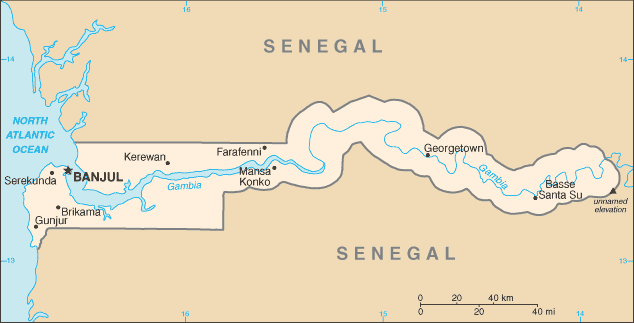Drug policy
The Drug Control Act of 2003 is the main law regulating the use and possession of controlled and prohibited drugs in The Gambia. This Act was amended in 2014 to formally establish the Drug Law Enforcement Agency of The Gambia (DLEAG) among many other things.
The Government of The Gambia is in the final year of implementation of the first national drug Control Strategy. The goals of this strategy include among others, measures to promote approaching drug abuse as a public health issue by departing from the strict criminal justice approach.
Cannabis is the most abused drug in The Gambia.
The measures employed in the fight against drug abuse (the NDCC Act 2003 and other penal laws) largely focus on punitive rather than preventive and rehabilitative measures.
The Gambia is in the process of revising the Drug Control Act to reflect greater flexibility for first time offenders for cannabis by introducing noncustodial sentencing such as community service and mentoring.
Treatment and Recovery Services
The Gambia suffers a huge limitation in drug treatment services due to the lack of a rehabilitation facility. Tanka Tanka is one of the only psychiatry hospitals in The Gambia that treats mental conditions.
Treatment options include Cognitive Behavioural Therapy (CBT), Psychotherapy, Psycho-education and Individual Counselling.
Treatment services are mainly offered within the Psychiatric Hospitals. Statistics from the country's only Psychiatric Hospital show that about 60% of hospital admission cases are due to Drug Induced Psychosis.
The Gambia is yet to have a specialised drug treatment facility for recovery management.
Presently, the only facility available for treatment is the “Tanka Tanka” Psychiatric Hospital which is not a specialised drug treatment facility.
Prevention Services
In the Gambia, the DLEAG is the major player when it comes to prevention and has been engaging in a series of evidence-based preventive drug demand reduction activities.
Working in partnership with relevant stakeholders, they are involved in the following:
-
Conducting weekly radio talk shows over different radio stations across the country
-
School and Community sensitization programs
-
Stakeholder’s consultation meetings
-
Television programs, workshops, symposium and seminars.
Non-Governmental Organisations support this agenda with sensitisation activities and outreach programmes in local communities.

